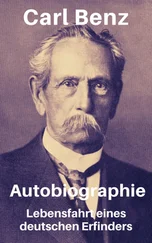The scientific form lies here in the endeavour to explore the nature of military phenomena to show their affinity with the nature of the things of which they are composed. Nowhere has the philosophical argument been evaded, but where it runs out into too thin a thread the Author has preferred to cut it short, and fall back upon the corresponding results of experience; for in the same way as many plants only bear fruit when they do not shoot too high, so in the practical arts the theoretical leaves and flowers must not be made to sprout too far, but kept near to experience, which is their proper soil.
Unquestionably it would be a mistake to try to discover from the chemical ingredients of a grain of corn the form of the ear of corn which it bears, as we have only to go to the field to see the ears ripe. Investigation and observation, philosophy and experience, must neither despise nor exclude one another; they mutually afford each other the rights of citizenship. Consequently, the propositions of this book, with their arch of inherent necessity, are supported either by experience or by the conception of War itself as external points, so that they are not without abutments. 2
It is, perhaps, not impossible to write a systematic theory of War full of spirit and substance, but ours hitherto, have been very much the reverse. To say nothing of their unscientific spirit, in their striving after coherence and completeness of system, they overflow with commonplaces, truisms, and twaddle of every kind. If we want a striking picture of them we have only to read Lichtenberg’s extract from a code of regulations in case of fire.
If a house takes fire, we must seek, above all things, to protect the right side of the house standing on the left, and, on the other hand, the left side of the house on the right; for if we, for example, should protect the left side of the house on the left, then the right side of the house lies to the right of the left, and consequently as the fire lies to the right of this side, and of the right side (for we have assumed that the house is situated to the left of the fire), therefore the right side is situated nearer to the fire than the left, and the right side of the house might catch fire if it was not protected before it came to the left, which is protected. Consequently, something might be burnt that is not protected, and that sooner than something else would be burnt, even if it was not protected; consequently we must let alone the latter and protect the former. In order to impress the thing on one’s mind, we have only to note if the house is situated to the right of the fire, then it is the left side, and if the house is to the left it is the right side.
In order not to frighten the intelligent reader by such commonplaces, and to make the little good that there is distasteful by pouring water upon it, the Author has preferred to give in small ingots of fine metal his impressions and convictions, the result of many years’ reflection on War, of his intercourse with men of ability, and of much personal experience. Thus the seemingly weakly bound-together chapters of this book have arisen, but it is hoped they will not be found wanting in logical connection. Perhaps soon a greater head may appear, and instead of these single grains, give the whole in a casting of pure metal without dross.
2.That this is not the case in the works of many military writers especially of those who have aimed at treating of War itself in a scientific manner, is shown in many instances, in which by their reasoning, the pro and contra swallow each other up so effectually that there is no vestige of the tails even which were left in the case of the two lions.
BRIEF MEMOIR OF GENERAL CLAUSEWITZ
(BY TRANSLATOR)
Table of Contents
The Author of the work here translated, General Carl Von Clausewitz, was born at Burg, near Magdeburg, in 1780, and entered the Prussian Army as Fahnenjunker ( i.e. , ensign) in 1792. He served in the campaigns of 1793-94 on the Rhine, after which he seems to have devoted some time to the study of the scientific branches of his profession. In 1801 he entered the Military School at Berlin, and remained there till 1803. During his residence there he attracted the notice of General Scharnhorst, then at the head of the establishment; and the patronage of this distinguished officer had immense influence on his future career, and we may gather from his writings that he ever afterwards continued to entertain a high esteem for Scharnhorst. In the campaign of 1806 he served as Aide-de-camp to Prince Augustus of Prussia; and being wounded and taken prisoner, he was sent into France until the close of that war. On his return, he was placed on General Scharnhorst’s Staff, and employed in the work then going on for the reorganisation of the Army. He was also at this time selected as military instructor to the late King of Prussia, then Crown Prince. In 1812 Clausewitz, with several other Prussian officers, having entered the Russian service, his first appointment was as Aide-de-camp to General Phul. Afterwards, while serving with Wittgenstein’s army, he assisted in negotiating the famous convention of Tauroggen with York. Of the part he took in that affair he has left an interesting account in his work on the “Russian Campaign.” It is there stated that, in order to bring the correspondence which had been carried on with York to a termination in one way or another, the Author was despatched to York’s headquarters with two letters, one was from General d’Auvray, the Chief of the Staff of Wittgenstein’s army, to General Diebitsch, showing the arrangements made to cut off York’s corps from Macdonald (this was necessary in order to give York a plausible excuse for seceding from the French); the other was an intercepted letter from Macdonald to the Duke of Bassano. With regard to the former of these, the Author says, “it would not have had weight with a man like York, but for a military justification, if the Prussian Court should require one as against the French, it was important.”
The second letter was calculated at the least to call up in General York’s mind all the feelings of bitterness which perhaps for some days past had been diminished by the consciousness of his own behaviour towards the writer.
As the Author entered General York’s chamber, the latter called out to him, “Keep off from me; I will have nothing more to do with you; your d——d Cossacks have let a letter of Macdonald’s pass through them, which brings me an order to march on Piktrepohnen, in order there to effect our junction. All doubt is now at an end; your troops do not come up; you are too weak; march I must, and I must excuse myself from further negotiation, which may cost me my head.” The Author said that he would make no opposition to all this, but begged for a candle, as he had letters to show the General, and, as the latter seemed still to hesitate, the Author added, “Your Excellency will not surely place me in the embarrassment of departing without having executed my commission.” The General ordered candles, and called in Colonel von Roeder, the chief of his staff, from the ante-chamber. The letters were read. After a pause of an instant, the General said, “Clausewitz, you are a Prussian, do you believe that the letter of General d’Auvray is sincere, and that Wittgenstein’s troops will really be at the points he mentioned on the 31st?” The Author replied, “I pledge myself for the sincerity of this letter upon the knowledge I have of General d’Auvray and the other men of Wittgenstein’s headquarters; whether the dispositions he announces can be accomplished as he lays down I certainly cannot pledge myself; for your Excellency knows that in war we must often fall short of the line we have drawn for ourselves.” The General was silent for a few minutes of earnest reflection; then he held out his hand to the Author, and said, “You have me. Tell General Diebitsch that we must confer early to-morrow at the mill of Poschenen, and that I am now firmly determined to separate myself from the French and their cause.” The hour was fixed for 8 A.M. After this was settled, the General added, “But I will not do the thing by halves, I will get you Massenbach also.” He called in an officer who was of Massenbach’s cavalry, and who had just left them. Much like Schiller’s Wallenstein, he asked, walking up and down the room the while, “What say your regiments?” The officer broke out with enthusiasm at the idea of a riddance from the French alliance, and said that every man of the troops in question felt the same.
Читать дальше












